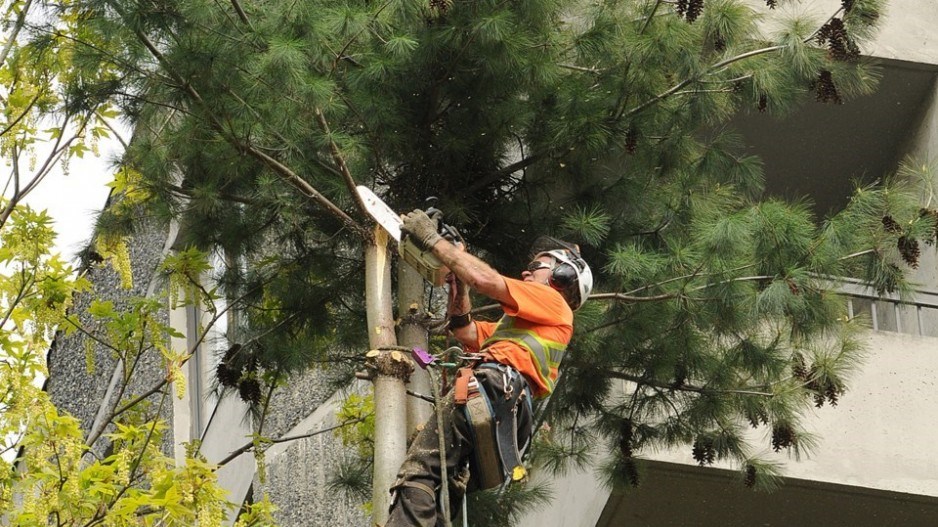A city staff report released Wednesday recommends that sections of the city’s tree protection bylaw be temporarily suspended for one year to reduce the amount of time a home builder has to wait for permits to begin construction.
Such an amendment would see approximately 200 small trees cut down over a one-year period in Vancouver neighbourhoods, with replacement trees not required for the loss, said the report, which goes before city council next Tuesday.
“As a result, staff anticipate potential savings of two to eight weeks in processing time for approximately 170 permits in the same one-year period,” the report said.
The bylaw’s current requirement is to protect all trees over 20 centimetres in diameter, except in very limited circumstances. Staff has recommended the threshold now be 30 centimetres in diameter.
“The current approach has been effective at retaining trees, but has had significant impact on permit processing times resulting in a landscape review bottleneck,” the report said.
“The proposed path to addressing the current backlog of landscape reviews strikes a balance between tree retention and reducing permit processing times by enabling reasonable relaxations.”
Two other staff recommendations related to trees include reducing the number of arborist reports associated to a building application, and “allow greater flexibility with trees that conflict with accessory buildings.”
On the need for an aborist report: “Staff are recommending that we relax current requirements to require an arborist report only in situations of life-safety, or trees over a certain size. The negative impact of this recommendation is negligible, however, this strategy has the potential to reduce processing time by one week or more for all permits that require a landscape review.”
On trees adjacent to accessory buildings: “This change would impact approximately 40 trees in the period of a year, many of which would likely require removal anyway, resulting in a potential savings of two to eight weeks of processing time, for approximately 40 permits in the same one-year period.”
The proposed changes to the bylaw are a result of city council’s push to reduce the time builders have to wait for necessary permits to begin construction. A task force was recently created to find immediate measures to reduce the chronic backlog.
“Beyond the specified potential savings, these proposed relaxations could eliminate a significant source of multi-month permit processing churn that is a regular source of complaint from residents and applicants,” the report said.
Mayor Kennedy Stewart said Wednesday at his weekly media availability that he expected the recommendations to be “thoroughly debated” by council next week.
“But in the end, it is about shifting resources away from kind of micro-managing properties,” he said, noting recommendations are also aimed at reallocating staff from other duties to accelerate permit turnarounds for builders.
One of those recommendations is for council to approve a 12-month delay to the implementation of amendments to the building bylaw related to mandatory zero emission building construction guidelines for all new homes.
Such a move would enable staff from that department to “remain focused on clearing existing backlogs before reallocating staff to developing the zero emission building compliance management framework,” the report said.
The recommendation is counter to council’s climate emergency goals, but the mayor explained Wednesday that supply chains for the building industry to adjust to zero emission compliance “aren’t ready yet.”
In April 2020, council approved a policy that said all new houses three-storeys and below will require space heating and domestic hot water to be electric, and to be built with superior insulation and windows.
That policy was to take effect Jan. 1, 2022.
“When the industry is closer to being able to meet our standards, then put these back on the agenda and get them in place,” Stewart said. “The intention of the climate emergency [plan] is running into kind of a practical reality of industry catching up to our current and future requirements.”
The Vancouver Courier reported in 2014 that more than 23,000 healthy trees were cut down in the city between 1996 and 2013. Back in 1995, more than 22 per cent of the city was covered in trees and that dropped to 18 per cent in 2013, with almost all of the canopy decline occurring on private property.




